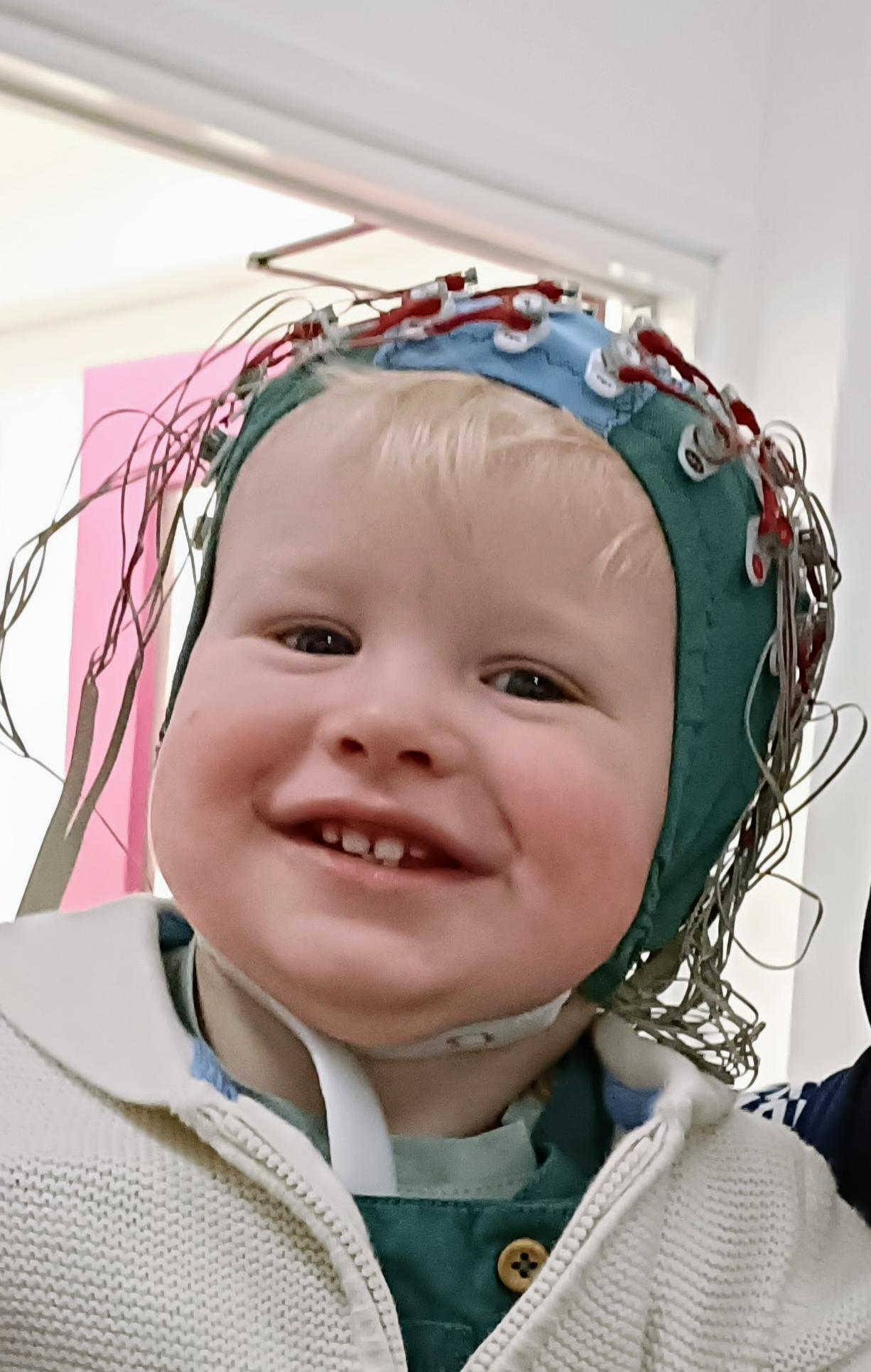
Researchers at Keele University are carrying out what is thought to be the first study to examine brain activity in babies born with hearing loss as they develop early cognitive skills.
Worldwide, more than 100,000 infants are born with severe-to-profound hearing loss every year, with at least 50,000 children in the UK who are deaf.
The study will use electroencephalography (EEG) to compare brain development between babies who are deaf, and babies with normal hearing, while they see and process a visual cue.
 Past studies have led scientists to believe that hearing loss negatively affects cognitive development, and causes difficulties with language development. However, Keele researchers say there are 'crucial gaps' in existing research, and believe their study will provide new information to help parents and clinicians better understand the developmental paths of babies with hearing loss and those with normal hearing.
Past studies have led scientists to believe that hearing loss negatively affects cognitive development, and causes difficulties with language development. However, Keele researchers say there are 'crucial gaps' in existing research, and believe their study will provide new information to help parents and clinicians better understand the developmental paths of babies with hearing loss and those with normal hearing.
Dr Claire Monroy, Lecturer in Psychology at Keele University who is leading the research, said: "Simply demonstrating a difference in performance does not allow us to infer the underlying brain mechanisms that cause the difference. In this case, we still do not know whether the difference reflects a deficit, as hypothesized, or whether it could reflect an adaptation of the deaf infants to their unusual sensory environment.
"Most of the prior research has been done with older children but we know very little about young babies and the effects of hearing loss on their sensory processing and overall cognition. This knowledge is crucial for understanding how hearing and hearing loss affect general cognitive development in babies."
The study, funded through the Economic and Social Research Council (ESRC) New Investigator grant, is aiming to examine cognitive development in 40 deaf babies and 40 hearing babies, and then follow up with them one year later to assess their language and other developmental outcomes.
 Dr Monroy added: "We take for granted that we integrate all of our senses effortfully from early on and are able to achieve, for instance, language. However, we are still far from understanding how these complex systems interact and even further from helping those who struggle.
Dr Monroy added: "We take for granted that we integrate all of our senses effortfully from early on and are able to achieve, for instance, language. However, we are still far from understanding how these complex systems interact and even further from helping those who struggle.
"The goal of the study is to help the scientific and medical communities understand the cognitive development of babies with hearing loss. Ultimately, the aim is to provide a stronger evidence base so parents and clinicians can make informed decisions about the next steps for their children who have a hearing loss."
Contact us
Andy Cain,
Media Relations Manager
+44 1782 733857
Abby Swift,
Senior Communications Officer
+44 1782 734925
Adam Blakeman,
Press Officer
+44 7775 033274
Ashleigh Williams,
Senior Internal Communications Officer
Strategic Communications and Brand news@keele.ac.uk.
